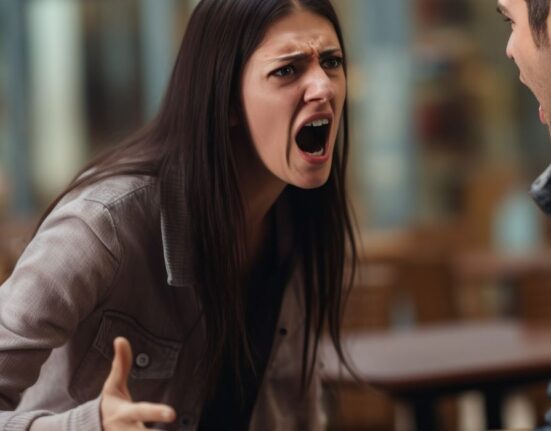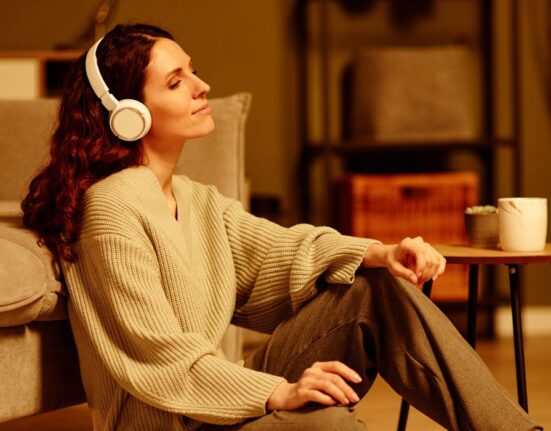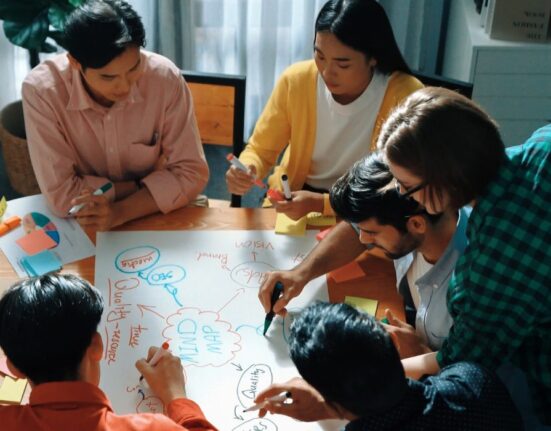Trigger Warning: This article contains words like shooting, death, mental health struggles, substance abuse, and emotional distress, which some readers may find upsetting. Please read with care. If you are struggling, consider reaching out to a mental health professional or helpline in your area.
“No one is born hating another person because of the colour of his skin, or his background, or his religion. People must learn to hate, and if they can learn to hate, they can be taught to love, for love comes more naturally to the human heart than its opposite.” Nelson Mandela, South Africa’s first black head of state, that too through true democracy. This quote comes from ‘Long Walk To Freedom’, an autobiography. It mentions the challenges that he has faced while fighting against apartheid and racism.
However, his words, along with other activists, were as strong during their time, but failed to have an effect during police brutality, yet their acquittal, in the shooting death of Trayvon Benjamin Martin, a 17-year-old African American from Miami Gardens, Florida. Reason being? Because he was from a different race.
Discrimination is that social weapon, which has been one of the most persistent challenges in the world. It can manifest in various forms, based on Age, Religion, Gender, Sexuality, Race, Disability, Culture, etc. These forms of unfair treatment towards individuals take root in different settings, including educational institutions and workplaces (Dovidio & Ikizer, 2019; DiTomaso, 2020).
Read More: Employment as a Pathway to Self-Identity in People with Disabilities
What is Awareness?
Awareness is not a simple concept; in fact, awareness is a complex notion that relates to being cognitively conscious of one’s environment, activities, and overall system states (Luczak, 2002). It involves understanding real-time sensory input and processing, and acting on what is considered relevant information. Awareness also plays a role in facilitating interactions between humans, as when humans share information, it may allow better coordination of activities. It is the knowledge of social systems and problems, and be ability to recognise problems and develop attitudes toward these systems. It is informative when approaching psychological issues and promoting development for society (Wani & Nadeem, 2016; Husain & Faize, 2020).
Read More: The Importance of Mental Health Awareness in Society
Can Awareness Reduce Discrimination?
Raising awareness is vital when addressing societal problems to foster social change. Mental health practitioners and policymakers alike must carry out work to expand people’s awareness of social and psychological issues for them to positively shift. A study on long-term intervention that explored awareness, concern, and bias-reduction strategies produced significant reductions in implicit racial bias (Devine et al., 2012).

In the context of caste discrimination in India, exposure to a TV social program reduced implicit prejudice against lower castes by potential employees (Banerjee & Datta Gupta, 2015). Awareness interventions have the potential to reduce prejudice, but they potentially also change how discrimination is assessed and reported.
Awareness of social issues can lead to higher social behaviour, especially when internally activated by prosocial and epistemic motivational states. It is important to increase awareness when sociological issues arise and when they are already present to prevent and lessen further problems.
Read More: Discussing Discrimination Through a Mental Health Lens
The Influence of Popular Culture and Public Figures
One of the most influential ways awareness spreads today is through pop culture. Whether it’s artists, influencers, or celebrities, so much sway and influence can happen in their circles instead of institutions. A striking example of this was the UNICEF “Love Myself” campaign started by the billion-dollar K-pop group called BTS. The “Love Myself” campaign was to end violence against children and teens and urged everyone to power through self-love and self-care to respect and better others.
Here’s an excerpt from RM’s speech: “No matter who you are, where you’re from, your skin colour, gender identity: speak yourself. Find your name, find your voice by speaking yourself.” The point of reference for everything that followed was a global message that related to young people in similar situations, who suffer blatant discrimination for being different. They showed they had others to talk to other than schools and academic people; they demonstrated awareness is not just institutional or academic; it is emotional, creative and relatable.
Read More: How BTS is supporting young people’s Mental Health
Representation in Institutional Settings, Workplace and Media
- Diversity and Inclusivity programs in schools and colleges: This can reduce discrimination and bias among students. It can be promoted through workshops, campaigns and subjects in the curriculum.
- Workplace awareness: Individuals can be provided with training and workshops to promote diversity.
- Social media campaigns: #BlackLivesMatter, #MeToo, and #LoveIsLove have raised awareness against discrimination globally, urging governments to implement political reforms.
Read More: It’s important to stand against Social media bullying
Awareness Is Not Enough
Awareness is an important starting point in disrupting harmful beliefs and building empathy, but it isn’t enough on its own to stop people from discriminating against others. One issue is that many people will reject our awareness messages when our messages challenge their beliefs. Some may even dismiss our awareness messages because they benefit from social systems like patriarchy, or they benefit from racism and are not willing to change. The inequality we see, like unjust pay or lack of maternity leave, exists because it is connected to deeper power structures in our society.
Real change only happens when awareness happens alongside structural changes. Otherwise, awareness stays as talk and doesn’t become action. To make matters worse, on social media, we tend to use activism as more of a “performance,” where we show awareness in online spaces but fail to make substantive steps forward. Therefore, the urgency for change is compromised.
Awareness as first step, not final
Awareness is indispensable to highlight injustices and challenge all forms of discrimination, cultivate compassion and solidarity around the world. And yet, it cannot eliminate inequalities on its own. Indeed, waiting for awareness (because it is important) will delay equity gains as the judgment of structural reforms, changing structural practices, and ongoing accountability takes place in time in the future and at an institutional, workplace and societal level.
Awareness must be a first step, not an end step. By awareness is we mean awareness being transformed into structural reform and structural practices; this can shift people’s thinking and action, which can lead to reductions in discrimination that are meaningful and a sustained practice.
FAQs
1. Why is awareness important in reducing discrimination?
Awareness helps people recognise unfair treatment, challenge stereotypes, and build empathy. It is the first step toward changing harmful beliefs that fuel discrimination.
2. Can awareness alone eliminate discrimination?
No. While awareness is vital, it is not enough on its own. Without structural reforms—like fair workplace policies, legal protections, and cultural accountability—awareness risks staying as “talk” rather than becoming action.
3. How does pop culture influence awareness?
Celebrities and influencers play a huge role in spreading awareness. For example, BTS’s Love Myself campaign with UNICEF inspired millions to practice self-love, fight discrimination, and embrace diversity.
4. What are examples of effective awareness campaigns?
Movements like #BlackLivesMatter, #MeToo, and #LoveIsLove have highlighted racism, gender violence, and LGBTQ+ rights on a global scale, pressuring governments and institutions to act.
5. What comes after awareness in fighting discrimination?
Action must follow awareness. This includes structural reforms (like equal pay laws, diversity programs in schools, and workplace inclusivity training) and consistent accountability to ensure real change.
Refrences +
Banerjee, R., & Gupta, N. D. (2015). Awareness programs and change in Taste-Based Caste Prejudice. PLoS ONE, 10(4), e0118546. https://doi.org/10.1371/journal.pone.0118546
Devine, P. G., Forscher, P. S., Austin, A. J., & Cox, W. T. (2012). Long-term reduction in implicit race bias: A prejudice habit-breaking intervention. Journal of Experimental Social Psychology, 48(6), 1267–1278. https://doi.org/10.1016/j.jesp.2012.06.003
France, D. (2019, February 14). Awareness without Action Does Not Lead to Change. Head Space and Timing. https://veteranmentalhealth.com/action/#:~:text=Published%20by%20Duane%20 France%20on%20February%2014%2C%202019&text=You%20don’t%20climb% 20a,%2C%20change%20won’t%20happen.
Husain, W., & Faize, F. A. (2020). Public awareness of psychological problems in Pakistan. Mental Health Review Journal, 25(1), 35–45. https://doi.org/10.1108/mhrj-09-2019-0033
Luczak, H. (2002). Editorial. International Journal of Human-Computer Interaction, 14(2), 135–138. https://doi.org/10.1207/s15327590ijhc1402_1
Moreu, G., Isenberg, N., & Brauer, M. (2021). How to promote diversity and inclusion in educational settings: behaviour change, climate surveys, and effective
Pro-Diversity initiatives. Frontiers in Education, 6. https://doi.org/10.3389/feduc.2021.668250
The Editors of Encyclopaedia Britannica. (2025, August 12). Black Lives Matter | Movement, founders, protest, George Floyd, timeline, & goals. Encyclopedia Britannica. https://www.britannica.com/topic/Black-Lives-Matter
The story from RM: ‘Tell us about Yourself’ – LOVE MYSELF. (2018, October 19). LOVE MYSELF. https://www.love-myself.org/post-eng/speak_yourself_eng/
Types of discrimination. (2025, January 23). Office of Equal Employment Opportunity. https://www.cdc.gov/oeeo/policies/discrimination.html#:~:text=On%20This%20Pa ge, Race%2C%20color%2C%20and%20sex
Wani, T. A., & Nadeem, N. (2016). Social awareness among higher education teachers. International Journal of Scientific Research in Education, 4(02). https://doi.org/10.18535/ijsre/v4i02.7













Leave feedback about this